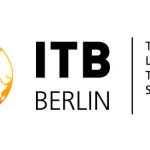
5 Tips for Hotel Revenue Management – How to Safeguard Your Investments
Dynamic factors should also be treated dynamically. This also applies to hotel revenue management. In the past, when the booking situation was good, many private hoteliers in particular did not sufficiently scrutinize their revenue management strategies. After all, things were going well, so why improve them?
Now, in times of lower demand, this attitude comes back to haunt them as it suddenly becomes clear that traditional distribution channels are lagging behind or that too high commissions are being paid because the booking behaviour of guests has changed. Our tip: optimizing sales can have a big impact on the company balance sheet, especially for private hotels. Find out what these effects are and how you can increase your revenue with a view to securing investments.
In this article:
- What is the importance of revenue optimization in hotels?
- Tip 1: Keep an eye on the key factors of hotel revenue optimization
- Tip 2: Focus on the guest
- Tip 3: Re-evaluate booking channels and guest segments
- Tip 4: Optimize F&B revenue
- Tip 5: Does the offer match the price and the price match the offer?
- Our tips for an optimized hotel revenue management strategy in summary
What is the importance of revenue optimization in hotels?
First of all, there is the question of the linguistic and economic significance of hotel revenue optimization. Optimizing one’s own revenues is essential for a healthy hotel. Revenue optimization is therefore the coordination of various revenue-generating strategies aimed at new guests or existing customers.
These strategies aim to achieve the best possible price for a hotel room. Best possible means that the price should be achieved at which the greatest profit is generated. Revenue optimization can therefore also be understood as a specific application methodology of revenue management.
On the economic level, revenue optimization is of enormous importance for the profitability of a hotel. Effective revenue management, for example, can help amortize investments more quickly: whether you’ve just renovated your rooms, upskilled your team, or outsourced tasks – these investments need to be recouped as quickly as possible through improved performance.
We have 5 tips for you to optimize your hotel revenue management strategy with a view to safeguarding investments.
Tip 1: Keep an eye on the key factors of hotel revenue management
If you think of revenue optimization only in terms of increasing room rates, you are thinking too short-sightedly. To be more profitable in the long run, you must keep an eye on a variety of factors, including these:
Create long-term demand forecasts
Basing booking forecasts purely on past data has been outdated since the beginning of the pandemic at the latest. Hotel revenue management systems based purely on historical data have failed to respond in time to new market dynamics. Clearly, such a scenario was unheard of before. Therefore, you should place your trust in long-term hotel revenue strategies that also allow you to make short-term price adjustments even in the event of unexpected peaks in demand.
Optimize your booking costs
If you want to generate bookings at any price without keeping an eye on the associated costs, you will quickly find yourself running an unprofitable business. Optimizing commissions has always been a challenge. Find a good balance between hotel visibility on channels with high commissions and direct bookings: where possible, generate bookings on channels that cost you less.
Manage booking restrictions with tact
If you recognize certain travel patterns that create booking gaps or the like at your expense, you can use restrictions to bridge such days. For a smaller loss of revenue, assign minimum lengths of stay to well-booked days (minimum length of stay restrictions) to pull adjacent low-demand days along. Or you can stimulate bookings on weaker days by means of targeted pricing. However, this requires a lot of sensitivity and understanding of your guests’ travel behaviour. Find out about more revenue optimization approaches here.
Tip 2: Focus on the guest
In our close cooperation with many private hotels, we see that some hotels still have the attitude: “The guest comes to us and gets exactly what we want to offer him.” This attitude, however, is outdated. Hoteliers must understand that the hotel industry is also changing, or must change, to become a consumer-centric industry. When booking, guests can choose from a variety of establishments where they feel most comfortable. And we see it as the hotelier’s duty to adapt to new needs.
Ask yourself:
- Is our concept still up to date?
- How can we better respond to the wishes of our target groups?
- What do the new generations expect from us?
Perhaps this will result in adjustments or expansion possibilities for your concept. Maybe you decide to better cater to food intolerances. Maybe you question in your SPA offer whether the foot reflex zone massage is still up-to-date or whether you prefer to offer a yoga session in the morning. Making the guest the focus of your concept is always an important aspect that offers great sales potential.
Tip 3: Re-evaluate booking channels and guest segments
If a hotel has a good occupancy rate, but the revenue is not right, this may be due to the operating costs associated with occupancy. Only the optimal interaction between a high occupancy rate and an appropriate increase in turnover will ultimately bring the decisive success. Without sufficient surpluses no new investments / liabilities that run the risk of not being able to be settled.
So optimize your booking channels so that you can achieve as much profit as possible at the lowest possible cost. One approach, as mentioned above, is to ensure more direct business. Here, automated processes help you manage all platforms more efficiently, saving commission costs without losing market visibility or responsiveness.
In terms of guest segments, large city hotel chains and city hotels will most likely continue to struggle. Where Leisure Hotels in DACH might even achieve more bookings next year than in 2019, demand for Corporate Hotels has been slow to pick up. For hotels relying on business travellers, the key will be how quickly major events – trade shows, conventions, meetings – come back. Here, it may make sense to increasingly expand leisure products in order to generate more revenue from private city trips.
Tip 4: Optimize F&B revenue
When did you last tackle your F&B concept? Of course, F&B revenue also contributes to optimizing overall sales. Question how you can position yourself more in line with the times or increase profits.
Does your F&B offer already sufficiently address your guests’ intolerances and new eating habits? Can you reduce food waste to save on F&B costs? Communicate the benefits and special features of your F&B concept to your guests, it could be one of your USPs.
Tip 5: Does the offer match the price and the price match the offer?
If room prices are raised in the sense of revenue optimization, guests have to go along with that. Especially if you’ve just made investments, making the right sales approach is more important than ever. However, you also need to know exactly when to sell high and when not to.
The offer must fit the price and vice versa. Clearly, if investments have been made in freshly renovated rooms, room price increases are easier to understand. Consider which feature in your rooms has which value for the guest and let that flow into your room price calculation.
However, higher prices often lead to higher expectations on the part of the guests. You may also need to invest in staff training, new service experiences, or outsourcing and professionalizing certain processes.
Our tips for an optimized hotel revenue management strategy in summary
If you want to secure investments, you have to increase revenues (and profits). Here we have summarized again the parameters you can adjust to achieve this:
- Keep an eye on the key factors of hotel revenue optimization.
- Focus on the guest.
- Re-evaluate booking channels and guest segments.
- Optimize your F&B revenues.
- Check if offer and price still fit together in your hotel.
However, it is important that you put a sound strategy behind the revenue optimization, from which all measures are derived.
We at HotelPartner are happy to help if you need expertise for your optimal hotel revenue management strategy – so that you have time for what is important, your guests. Just ask us.









